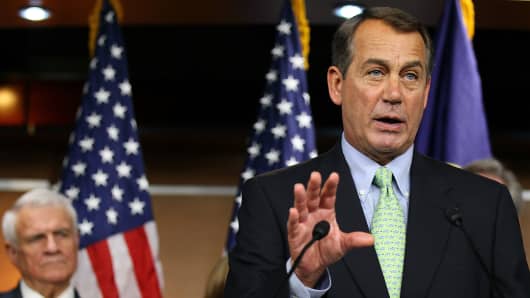One of the touted benefits of "Plan B" is that it only raises taxes for those making $1 million or more. As Eric Cantor said Thursday morning, the plan would raise revenue "without hurting many small businesses" or taxpayers.
But a closer look at the tax impacts of Plan B shows that while it raises taxes on most million-plus earners, it also raises takes for many low-income earners.
The non-partisan Tax Policy Center found that the average taxpayer earning $1 million or more in cash income would see their taxes go up by an average of $72,000. A small number of those million-plus earners will see a tax cut, due to an anomaly in the Alternative Minimum Tax.
But lower income earners will also see a tax hike. People making between $10,000 to $20,000 will see their taxes go up by an average of $262. People making $20,000 to $30,000 will see their taxes go up by $219. (Read More: How Much Would Taxing the Rich Raise?)
Granted, those are minor increases. But drilling down deeper, you find that some of those low-income earners could see a sizable increase. One in five of Americans who earn less than $20,000 a year will see an increase of $1,070 – a sizable amount for low-income earners.



